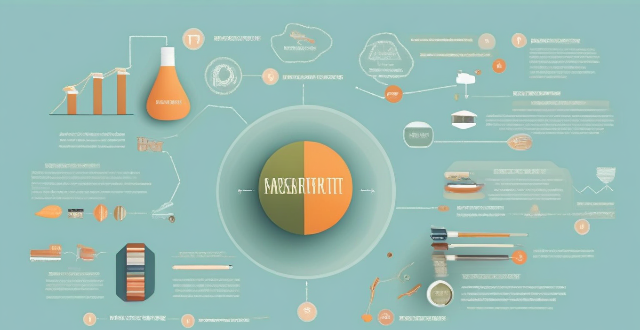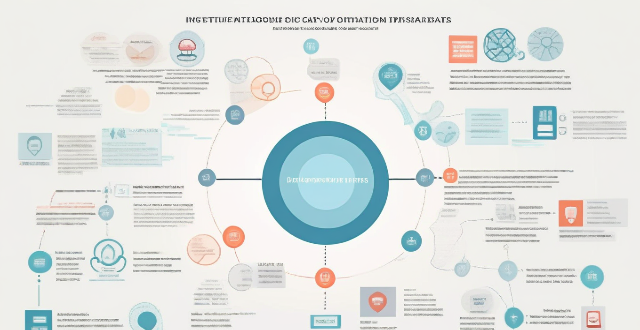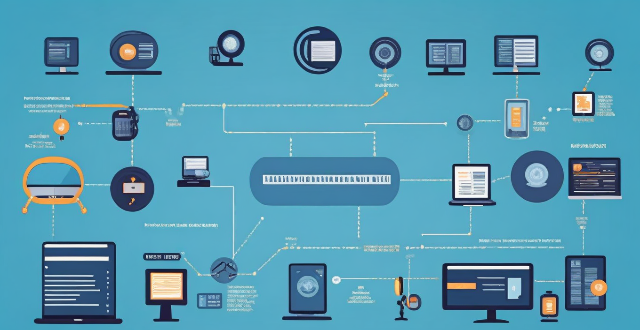Data Industry

How can data analytics help identify areas for energy efficiency improvements in industry ?
Data analytics is crucial for identifying opportunities for energy efficiency improvements in industry. It enables real-time and historical monitoring, benchmarking, process optimization, predictive maintenance, and demand response management. These insights help companies reduce energy waste, cut costs, and minimize environmental impact.

What are the challenges faced by the insurance industry in addressing climate change ?
The insurance industry faces several challenges in addressing climate change, including data-related issues, regulatory and legal concerns, and operational difficulties. These challenges can be broadly classified into three categories: data-related challenges, regulatory and legal challenges, and operational challenges. Data-related challenges include insufficient historical data and lack of standardization in collecting and analyzing climate-related data across the insurance industry. Regulatory and legal challenges involve lack of clarity in regulations governing how insurers should account for climate change in their risk assessments and pricing strategies, as well as liability concerns due to increased natural disasters and extreme weather events. Operational challenges include limited capacity to model climate risks, inadequate infrastructure for disaster response, and difficulty in pricing policies accurately. To overcome these challenges, insurers need to work together and invest in research and development to develop more sophisticated models and hire experts who can help them understand and manage climate risks effectively. They also need to continuously monitor climate trends and adjust their pricing strategies accordingly. By doing so, the insurance industry can play a vital role in managing the risks associated with climate change.

How has the private equity industry evolved over time ?
The private equity (PE) industry has undergone significant changes since its inception, evolving from small and mid-sized business investments to larger companies and more complex transactions. The industry has diversified into various sub-sectors like venture capital and distressed investing, allowing firms to specialize in specific areas. Technological advancements have played a crucial role in shaping the PE industry, improving investment decision-making processes. Regulatory changes have also influenced the evolution of the industry, promoting transparency, fairness, and accountability. Looking ahead, the PE industry is likely to continue evolving as it adapts to changing market conditions, technological advancements, and regulatory environments.

How does Fintech influence the job market in the finance industry ?
The influence of fintech on the job market in the finance industry has led to the creation of new roles and changes in the skillset required for existing positions. Fintech companies have increased demand for software developers, data scientists, and cybersecurity experts. Additionally, specialized financial roles like fintech startup founders, regulatory compliance officers, and customer experience managers have emerged. Traditional finance roles such as bankers, accountants, and investment advisors now require proficiency in digital tools and an understanding of automation and data analytics. As technology continues to advance, the finance industry workforce will need to adapt continuously to stay relevant in the changing job market.

What is data encryption and how does it work ?
Data encryption is a crucial cybersecurity measure that transforms plaintext into ciphertext, protecting it from unauthorized access. It involves the use of complex algorithms and secret decryption keys. Encryption is significant for securing data at rest, in transit, and during processing, helping meet compliance requirements and reducing financial risks associated with data breaches. Its evolution includes historical precursors and wartime innovations, with AI expected to enhance its capabilities in the future.

How has the sports industry influenced the film industry ?
The sports industry has significantly impacted the film industry in various ways, including inspiring storylines, providing cross-promotion opportunities, fostering collaborations between athletes and filmmakers, and shaping certain film genres.

What are the most prestigious awards in the entertainment industry ?
The entertainment industry has several prestigious awards that recognize outstanding achievements in various fields such as acting, directing, producing, and music. Some of the most notable awards include the Academy Awards (Oscars), Emmy Awards, Grammy Awards, Tony Awards, Golden Globe Awards, BAFTA Awards, Critics' Choice Awards, and MTV Movie & TV Awards. These awards not only honor talented individuals but also set the benchmark for excellence in the industry.

What measures can the fishing industry take to adapt to the challenges posed by a changing climate ?
The fishing industry is facing challenges due to climate change impacts on fish populations and migration patterns. To adapt, the industry should embrace sustainable practices, enhance ecosystem resilience, adapt to changes in fish populations, build long-term resilience, and develop community support. This includes reducing bycatch, supporting stock assessment and management, protecting marine habitats, maintaining genetic diversity, adjusting fishing grounds, diversifying target species, investing in technology, educating and training personnel, engaging in policy advocacy, promoting consumer awareness, and collaborating with local communities. Stakeholders must work together to ensure the sustainability and prosperity of the fishing industry amidst a changing climate.

What are the most innovative applications of technology in the healthcare industry ?
The healthcare industry has seen significant advancements due to innovative applications of technology. Telemedicine allows patients remote access to care, reducing travel time and increasing efficiency. Wearable devices track health metrics, promoting healthy habits. AI and machine learning analyze medical data for accurate diagnoses and personalized treatments. Robotic surgery systems enhance precision in minimally invasive procedures. Blockchain technology secures sensitive medical data sharing among providers.

What is data privacy ?
Data privacy is the protection of personal information from unauthorized use. It's important for individual rights, building trust, legal compliance, and risk mitigation. Principles include data minimization, anonymization, encryption, transparency, consent, access control, retention, integrity, and accountability. Best practices involve regular audits, employee training, updating policies, secure systems, and response plans for data breaches.

Are there any celebrities who have publicly spoken about the importance of having true friends in the entertainment industry ?
The text discusses the importance of having true friends in the entertainment industry, as highlighted by various celebrities. These include Taylor Swift, Amy Schumer, Justin Timberlake, Oprah Winfrey, Kristen Bell, Dwayne Johnson (The Rock), Lady Gaga, Emma Stone, Chris Pratt, and Selena Gomez. They have all spoken about the value of genuine connections and supportive relationships in maintaining their well-being and happiness amidst the challenges and unpredictability of the entertainment industry.

How do fuel vehicles affect the economy, particularly in terms of employment in the oil industry ?
The text discusses the impact of fuel vehicles on employment in the oil industry. It highlights that the industry offers a range of jobs from exploration and extraction to refining, distribution, and sales. However, it also notes challenges such as market volatility, environmental concerns, and technological advances that could affect job stability in the sector. The text concludes by emphasizing the need for strategies that promote economic stability while encouraging sustainable practices and innovation.

How has social media impacted the entertainment industry ?
The text discusses the impact of social media on the entertainment industry. It mentions that social media has increased accessibility to content, changed content creation, made it possible for audiences to interact with creators, become a crucial tool for marketing and promotion, and created new revenue streams. The text concludes that social media has had a profound impact on the industry and will continue to shape its future.

What is the role of encryption in securing data transmission ?
Encryption is crucial for securing data transmission by converting plain text into unreadable ciphertext, ensuring confidentiality, integrity, and authentication. It protects sensitive information, prevents data tampering, enhances trust, complies with regulations, and reduces the risk of data breaches. Two main types of encryption are symmetric and asymmetric encryption, each using different keys for encryption and decryption.

How do regulations affect the growth of the commercial space industry ?
Regulations significantly influence the growth of the commercial space industry by providing a framework for innovation, ensuring safety and security, promoting competition, addressing environmental concerns, and adapting to rapid changes. Effective regulations can facilitate industry growth by reducing uncertainty and lowering barriers to entry, while also protecting public interest through strict safety standards and sustainable practices.

What are the latest trends in the entertainment industry ?
The entertainment industry is constantly evolving, with new trends emerging every year. Some of the latest trends include streaming services, virtual reality and augmented reality technologies, e-sports and live streaming, interactive content, and diversity and inclusion. Streaming services like Netflix and Hulu are becoming more popular as people cut the cord on cable subscriptions. Virtual reality and augmented reality technologies are being explored for use in gaming, movies, concerts, and live events. E-sports has become a major trend with millions of people tuning in to watch professional gamers compete. Interactive content creates a more engaging experience for audiences by allowing them to influence the outcome of a show or movie. Diversity and inclusion are also becoming increasingly important in the entertainment industry as studios and networks work to create more diverse casts and stories that reflect different cultures and perspectives.

How can educational institutions use data analytics to improve student outcomes ?
Educational institutions can use data analytics to improve student outcomes by identifying areas of focus such as performance tracking, curriculum analysis, and student engagement. Implementing data-driven strategies like personalized learning, predictive analytics, and resource allocation can further enhance student success. Continuous evaluation and collaboration are key to measuring success and making necessary adjustments.

How do you use historical data to make predictions about future stock market performance ?
Predicting the stock market's future performance is a complex task that involves analyzing various factors. One common method used by investors and analysts is to study historical data, which can help make informed predictions about future market performance. To use historical data for stock market predictions, it is essential to identify key metrics such as price movements, volume, earnings reports, and economic indicators. Once these metrics are identified, analyze the historical data to identify trends and patterns through technical analysis techniques like moving averages, support and resistance levels, and candlestick patterns. Additionally, consider using fundamental analysis to evaluate underlying factors that drive stock prices, such as financial statements, industry trends, and macroeconomic factors. With the advancement of technology, machine learning and AI models have become popular tools for predicting stock market performance, including neural networks, reinforcement learning, and deep learning. Combining different methods of analysis can lead to more accurate predictions about future stock market performance. However, it's important to remember that no method is foolproof, and there will always be an element of risk involved in investing in the stock market.

What is the impact of e-sports on the entertainment industry ?
E-sports, also known as electronic sports, have become a significant force in the entertainment industry over the past decade. The growth of e-sports has had a profound impact on various aspects of the entertainment sector, including media consumption, advertising, sponsorships, and even traditional sports. In this article, we will explore the different ways e-sports have influenced the entertainment industry. One of the most noticeable effects of e-sports on the entertainment industry is the increased media consumption. With the rise of streaming platforms like Twitch and YouTube Gaming, more people are watching e-sports events than ever before. This has led to a surge in viewership numbers for major e-sports competitions, with some events drawing audiences that rival those of traditional sports. The popularity of live streaming has played a crucial role in the growth of e-sports. Platforms like Twitch allow fans to watch their favorite players and teams compete in real-time, creating an interactive experience that goes beyond simply watching a game. This has not only increased the overall viewership but also provided opportunities for advertisers and sponsors to reach a highly engaged audience. As e-sports continue to gain momentum, so does the number of content creators who specialize in covering the latest news, highlights, and analysis related to the industry. These creators generate a vast amount of content across various social media platforms, further driving engagement and expanding the reach of e-sports within the entertainment landscape. The booming e-sports industry has attracted numerous advertisers and sponsors looking to tap into its growing fanbase. Brands ranging from energy drinks to computer hardware companies have invested heavily in e-sports, sponsoring tournaments, teams, and individual players. Many high-profile e-sports events now feature prominent sponsorship logos and brand integrations throughout their broadcasts. These partnerships not only provide financial support for the organizations hosting these events but also offer valuable exposure for the sponsoring brands. Top e-sports players and teams have secured lucrative endorsement deals with major brands, similar to those seen in traditional sports. These deals often include personal appearances, social media promotions, and exclusive product collaborations, further blurring the lines between e-sports and mainstream entertainment. E-sports' rapid growth has prompted many traditional sports organizations to take notice and adapt accordingly. Several professional sports leagues, such as the NBA and NFL, have launched their own e-sports initiatives or partnered with existing e-sports organizations to expand their reach among younger audiences. There has been a notable crossover between e-sports professionals and traditional athletes, with some former athletes transitioning into e-sports careers or investing in e-sports teams. Additionally, traditional sports stars have participated in e-sports events or collaborated with e-sports personalities, showcasing the increasing interconnectedness of these two worlds. Recognizing the potential of e-sports, several major sports organizations have made substantial investments in the space. This includes everything from forming dedicated e-sports divisions within their organizations to acquiring stakes in existing e-sports teams or leagues. These moves underscore the belief that e-sports represent a viable long-term investment opportunity within the broader entertainment industry. E-sports' impact on the entertainment industry is undeniable, as it continues to shape how we consume media, engage with brands, and interact with both emerging and established forms of entertainment. As e-sports continue to grow and evolve, they will undoubtedly play an increasingly central role in shaping the future of the global entertainment landscape.

Are there any industry-specific considerations for implementing workplace wellness programs ?
Workplace wellness programs should consider industry-specific needs and challenges. For the manufacturing industry, safety training and ergonomic assessments are essential, while physical fitness initiatives like on-site gym facilities and fitness challenges can encourage employees to stay active. In the healthcare industry, mental health support through stress management programs and access to counseling services is crucial, along with infectious disease prevention measures such as vaccination programs and hand hygiene campaigns. The technology industry can benefit from digital detox retreats and sitting disease prevention strategies like standing desks and movement breaks. Tailoring workplace wellness programs to address industry-specific concerns can create more effective initiatives that improve employee health and productivity.

Is network slicing secure for sensitive data transmission ?
Network slicing is a technology that allows multiple virtual networks to coexist on a shared physical infrastructure, enabling service providers to offer customized services with different QoS requirements. While network slicing offers numerous benefits such as customization, resource allocation, scalability, and isolation, there are also potential security concerns that need to be addressed. These include data isolation, access control, encryption, and intrusion detection and prevention systems (IDPS). By implementing robust isolation mechanisms, access control policies, strong encryption algorithms, and effective IDPS, service providers can leverage network slicing while maintaining the security of sensitive data transmission.

How does data encryption affect computer performance ?
Data encryption is crucial for securing data but can affect computer performance by increasing processor load, memory usage, disk I/O, network latency, and reducing battery life.

How can we improve safety measures in the construction industry ?
Improving safety measures in the construction industry is crucial for protecting workers and ensuring project completion without delays. A comprehensive approach to enhancing safety includes implementing rigorous training programs, developing comprehensive safety policies, enforcing the use of personal protective equipment (PPE), conducting regular inspections and maintenance, promoting a safety culture, utilizing modern technology, improving housekeeping and orderliness, conducting risk assessments, adopting best practices, and partnering with safety organizations. By prioritizing safety measures, the construction industry can significantly reduce accidents and create a secure environment for all stakeholders involved.

What is the impact of sports movies on the sports industry ?
Sports movies have a significant impact on the sports industry by inspiring and motivating people, promoting healthy lifestyles, generating interest in different sports, and providing marketing and branding opportunities. These movies can encourage people to pursue their dreams, work hard, and never give up, as well as highlight the importance of physical fitness and healthy living. Additionally, sports movies can generate interest in less popular or well-known sports and provide excellent marketing and branding opportunities for companies involved in the sports industry. Overall, sports movies play an essential role in shaping public perception and attitudes towards sports and physical activity.

Is data encryption necessary for all types of businesses and industries ?
The Importance of Data Encryption in Modern Business Operations Data encryption is a crucial aspect of modern business operations, ensuring confidentiality, integrity, and availability of sensitive information. Different types of businesses and industries handle varying degrees of sensitive data, requiring robust security measures. Healthcare, finance, e-commerce, and legal sectors are examples where encryption is necessary due to the nature of the data they handle or regulatory requirements. However, the necessity of implementing encryption can depend on factors such as the type and amount of sensitive data, risk assessment, and compliance with legal requirements. To implement data encryption, businesses must assess their needs, develop a data protection policy, choose appropriate technologies, integrate them into systems and processes, and regularly monitor and maintain these measures. While not always necessary for every business, data encryption is often a wise investment that can protect sensitive information and ensure business continuity.

How do you analyze the performance of a specific industry within the stock market ?
Analyzing the performance of a specific industry within the stock market requires a comprehensive understanding of various factors that can impact the industry's growth and profitability. Key steps to follow include identifying the industry, studying its trends, analyzing the financial performance of key players, evaluating the competitive landscape, considering macroeconomic factors, using financial ratios and metrics, and considering industry-specific factors. By following these steps, you can gain a better understanding of the performance of a specific industry within the stock market and make informed investment decisions based on your analysis.

Why is data encryption important for online security ?
Data encryption is crucial for online security, protecting dataData encryption is crucial for online security, protecting data the financial impact of breaches It has evolved from ancient uses to a critical tool in today's digital landscape, with AI optimizing key management and enhancing algorithms.

How can women establish a personal brand that stands out in their industry ?
How Women Can Establish a Personal Brand that Stands Out in Their Industry

How do climate-related concerns influence consumer choices in the food industry ?
Climate change is a pressing issue that affects various aspects of life, including the food industry. As consumers become more aware of their environmental impact, they are increasingly making choices based on climate-related concerns. This shift in consumer behavior has significant implications for food producers, retailers, and the entire supply chain. Factors influencing consumer choices include environmental sustainability, health considerations, economic factors, ethical concerns, personal values and beliefs. The impact on the food industry includes product development, supply chain management, marketing strategies, retail practices, and policy influence. Businesses that adapt to these changing preferences by embracing sustainability and transparency are likely to gain a competitive edge in the marketplace. It is essential for companies to anticipate and respond to these trends to maintain relevance and profitability while contributing positively to the environment.

What are the benefits of having an unlimited data plan ?
An unlimited data plan offers benefits such as no data caps or overage charges, the ability to stream videos and music without worrying about data usage, using multiple devices simultaneously, working from anywhere, enjoying online gaming and social media, and better value for money.